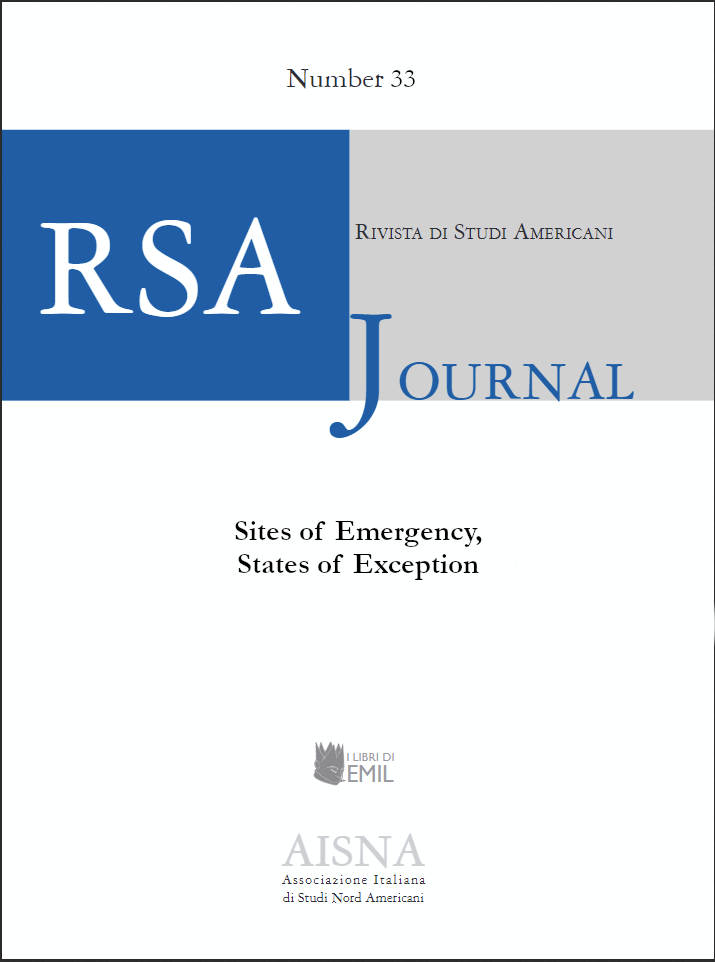An Alternate History of the Warring States
Global War in a State of Exception and Democratic Short-circuit in Matt Gallagher’s “ Empire” City
DOI:
https://doi.org/10.13135/1592-4467/8428Keywords:
state of exception, imperialist practices, alternate history, superhero fictionAbstract
Matt Gallagher’s 2020 novel Empire City features an alternate history where the USA, having emerged victorious in Vietnam, have gone on to wage an endless war in the Mediterranean while citizens live in a militaristic police state. This article argues that Gallagher’s novel moves between alternate history and superhero fiction to highlight the consequences of an indiscriminate use of executive power through the imposition of a perpetual state of exception – a pervasive feature of western democracies according to Giorgio Agamben. This alarming rupture between the government, citizens, and soldiers exposes an authoritarian threat that, unlike in typical alternate histories, is not tied to a foreign menace or ideology. Rather, it originates within the American democratic state, where the alienating absence of truly democratic decisions on military operations results in a sharp divide between civilians and service members, raising questions about the motives of the US imperialist practices. In this context, the story reads like a cautionary tale that responds to a perceived state of emergency of American democracy and its declining global hegemony.
Downloads
Published
Issue
Section
License
RSAJournal will apply a CC BY 4.0 license to all its contributions starting with issue 37 (2026). Previous issues are licensed under a CC BY-NC-ND licence.





